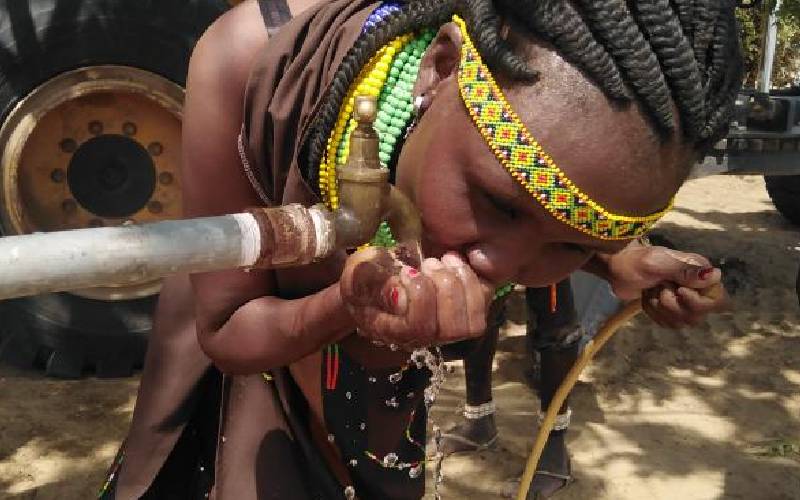×
The Standard e-Paper
Join Thousands Daily

Residents of West Pokot County living along the Kenya-Uganda border have benefited from a multi-million-shilling water project.
Nasal Water Project serves more than 4,000 households, 12,000 livestock as well as Nasal Primary School and dispensary.